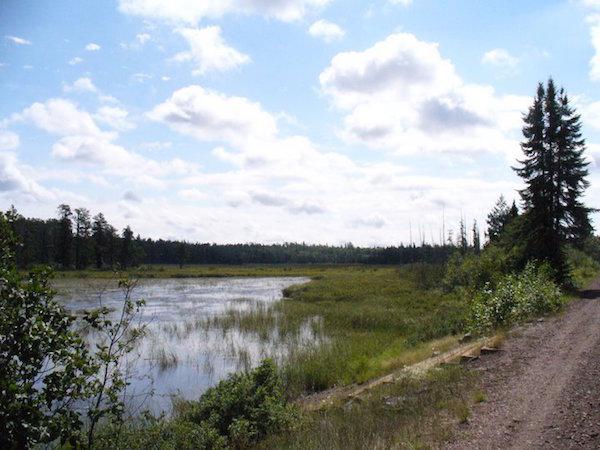NCAI Demands Environmental Review of Enbridge Pipeline Through Wild Rice Lands

The National Congress of American Indians (NCAI) has passed a resolution calling for a full environmental impact statement on a proposed oil pipeline that would cut through indigenous wild rice lands.
The resolution, passed on July 1, noted that manoomin—wild rice—is not only sacred to the Anishinaabe but also that tribes in Minnesota are the largest producers of it in the U.S., making it an economic mainstay as well as a federally protected tribal resource. The White Earth and Mille Lacs bands of Ojibwe are opposing attempts to build the $2.6 billion Sandpiper pipeline, which would snake across northern Minnesota on its way from the Bakken oil fields of North Dakota to Superior, Wisconsin.
RELATED: Mille Lacs and White Earth Bands Fighting Pipelines That Threaten Wild Rice
“Tribal governments throughout Minnesota and Wisconsin have significant concerns that the development of, and any release from, Enbridge Corporation’s Sandpiper oil pipeline along its proposed route would have devastating impacts on unique spiritual and cultural resources, as the proposed pipeline route will cross directly through the most sensitive wild-rice producing lakes and rivers within the treaty-ceded territories in Minnesota,” the NCAI resolution read, in calling for the U.S. Environmental Protection Agency (EPA) to step up and advocate for tribes.
“The NCAI calls upon EPA to engage with the Army Corps [of Engineers] immediately to stress concerns and advocate for the most thorough environmental review possible, including respect of tribal resources and environmental justice issues,” the NCAI resolution said.
Further, the “EPA must assist the appropriate Bands of Chippewa/Ojibwe to become designated as ‘cooperating agencies’ during NEPA review,” NCAI said, and must “urge that a joint Federal-State Environmental Impact Statement be undertaken to enhance coordination around novel and complex tribal resource and environmental issues.”
Besides demanding the state-federal environmental impact statement, the NCAI wants the EPA to look into any other federal permits that might be required, designate a high-level official to serve as a liaison between the government and tribal governments “on all aspects of the Sandpiper project,” and to meet with affected tribes and bands in the wake of the June 5 MPUC hearing.
The tribes, meanwhile, are continuing with action of their own. The environmental group Honor the Earth, founded and headed by activist and author Winona LaDuke, is planning its third annual Love Water Not Oil tour next month. It will wend its way nearly 250 miles from Madeline Island, Wisconsin to Bemidji, Minnesota, the route the pipeline would take.
“The proposed new oil pipelines in northern Minnesota violate the treaty rights of the Anishinaabeg by endangering critical natural resources in the 1854, 1855, and 1867 treaty areas,” said Honor the Earth in a media release on July 9. “All pipelines leak, and catastrophes like Enbridge’s one-million-gallon spill in 2010 on the Kalamazoo River, the largest inland oil spill in U.S. history and still not cleaned up, are not unlikely.”
RELATED: Record Fine Proposed for Enbridge for 2010 Michigan Oil Spill
“These pipelines threaten the culture, way of life, and physical survival of the Ojibwe people,” LaDuke said in the Honor the Earth statement. “We will continue to work to protect our water and our rice, as our ancestors did before us.”
Read more at http://indiancountrytodaymedianetwork.com/2015/07/14/ncai-demands-environmental-review-enbridge-pipeline-through-wild-rice-lands-161063